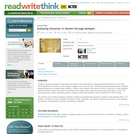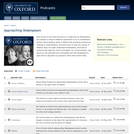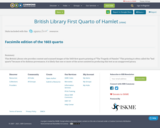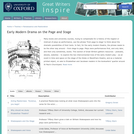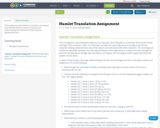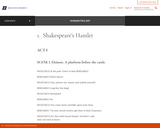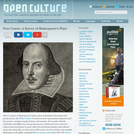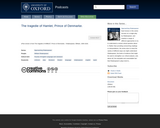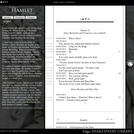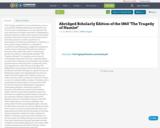
"The Tragedy of Hamlet" is, first and foremost, a text to be performed. William Shakespeare intended for the text to be seen in performance, not read, and all of the early texts have no reliable connection to Shakespeare's editorial authority.
In light of this, from the very earliest printings, editors have chosen to edit the play's text for particular purposes: to make a quick buck, to memorialize a recently deceased friend, to conform to a time period's unique aesthetic, or to attempt to reconstitute what Shakespeare might have intended in an ideal version of the play.
This particular edition is focused on the student who wants to read the play quickly. The edition is unabashedly abridged. "The Tragedy of Hamlet" is a long play, and, in a time of increasingly compressed curricula, a maximal edition can often take a long time to get through in class. Nearly all performances of the play, both on stage and screen, feel empowered to reduce the size of the play. The Zeffirelli film cuts the play's text by half. Moreover, if we use"Romeo and Juliet"s prologue as a guide that most of Shakespeare's plays were approximately two hours in length, then that suggests that "Hamlet," which can easily reach four-hour run-times in a "full-text" version, can be cut in half and still be coherent.
Therefore, this is a performative textual edition. It cuts the text by 50% but doesn't dumb down Shakespeare's language by modernizing spelling or altering the syntax. In particular, this edition has removed the Fortinbras subplot. Teachers and students should be aware that this removes a significant political theme in the play. It also removes a Hamlet soliloquy and a key foil for Hamlet's character.
This edition is based on the 1860 Globe edition because of its free availability. Later editions (both full-text and abridged) might eventually be offered that are based on a critical conflation of early texts in order to arrive at an ideal authorial-intent text.
Importantly, this edition has the advantage of including textual annotations to help the student understand difficult vocabulary, syntax, and cultural allusions. In this last regard, the edition attempts to be more useful than other online texts of the play that might be freely available but lack helpful guidance for the reader.
Other contextual material are provided to help the student understand early appreciations of the play.
- Subject:
- English Language Arts
- Material Type:
- Primary Source
- Date Added:
- 03/08/2016
